protests in sudan
Thousands of Sudanese rallied in the capital of Khartoum on Thursday to demand an exclusively civilian transitional government, accusing the generals now in power of derailing its transition to democracy.
Sudan has been ruled by an interim joint civilian-military government since 2019.
The military ousted longtime autocrat Omar al-Bashir in April that year, following four months of mass protests against his rule.
Months after al-Bashir’s toppling, the ruling generals agreed to share power with civilians representing the protest movement.
On Thursday, demonstrators waved the Sudanese flag and chanted pro-democracy slogans.
They accuse the military of dragging its feet on the transfer of power to civilians, purging state institutions of remnants of al-Bashir's regime and bringing to justice those responsible for the killing of dozens of protesters in June 2019, when security forces dispersed a sit-in outside the military headquarters in Khartoum.
Activists circulated videos showing a train carrying protesters from other Sudanese provinces as they arrived in the capital.
The footage shows train cars packed with passengers waving Sudanese flags from the windows and making victory signs. Other passengers are seen riding on the rooftop of the train.
Sudan's interim authorities last week said they foiled a coup attempt, an incident that has since increased tensions between the generals and civilians in the transitional government.
The developments underscore the fragility of Sudan’s path to democracy.
Prime Minister Abdalla Hamdok, the civilian face of the government, blamed remnants of al-Bashir’s government for the coup attempt, describing it as an effort to undermine Sudan’s democratic transition.
The interim government has been under increasing pressure to end wars with rebel groups as it seeks to rehabilitate the country’s battered economy, attract much-needed foreign aid and deliver the democracy it promised.
Protesters were expected to march to the Republican Palace, the seat of the ruling Sovereign Council.
The council was created by a power-sharing agreement signed in August 2019 by the military and pro-democracy activists. It consists of five military and six civilian members and is headed by Gen. Abdel-Fattah Burhan.




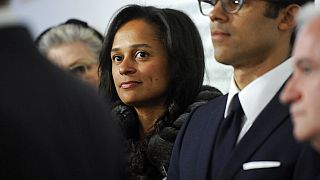
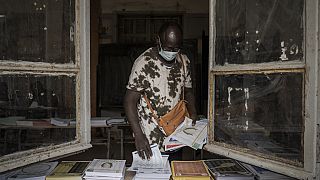
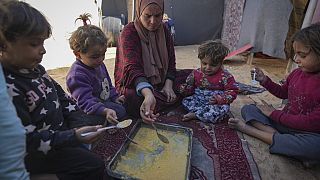

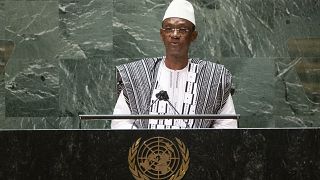
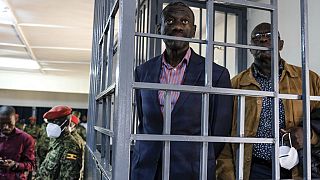
01:07
Sudan keeps key aid crossing from Chad open to keep humanitarian aid flowing
01:43
UNICEF calls for urgent action on Sudan’s “forgotten crisis”
Go to video
Russia probes alleged cargo jet shoot-down in Sudan's Darfur
01:13
UNICEF: Sudanese children bear the brunt of vicious war
01:11
EU parliament debates Sudan conflict, calls for civilian transition
Go to video
Sudan: US sanctions brother of paramilitary leader